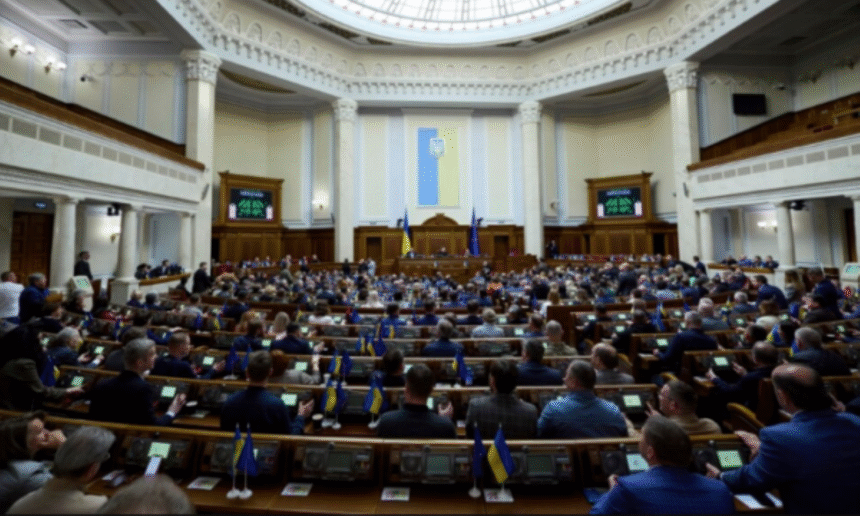Ukrainian lawmakers have voted to tighten restrictions on two key anti-corruption agencies, sparking concerns about the state’s commitment to eradicating corruption. In the 450-seat Parliament, 263 deputies voted in favor of a law that limits the independence of the National Anti-Corruption Bureau of Ukraine (NABU) and the Specialized Anti-Corruption Prosecutor’s Office (SAPO).
New Law Centralizes Power, Weakens Agencies
The new law, proposed by President Volodymyr Zelensky’s Servant of the People party, effectively makes the Prosecutor General the de facto head of SAPO, stripping authority from the agency’s own chief. It also grants the Prosecutor General the unilateral power to close cases involving high-ranking officials and the right to transfer cases under NABU investigation to other agencies.
“With this decision, Parliament not only takes away from society one of the greatest achievements since the Revolution of Dignity – independent anti-corruption institutions – but also undermines the trust of Ukraine’s international partners,” Transparency International Ukraine stated in a press release following the vote. “The only way to undo the damage is for the President to veto the law. Otherwise, President Volodymyr Zelensky will share responsibility with Parliament for destroying Ukraine’s anti-corruption infrastructure.”
NABU Faces Raids and Arrests
These legislative challenges come as NABU has also faced several operational challenges. On July 21, the internal security agency, SBU, arrested two NABU officials – one for alleged spying for Russia and another for suspected business ties with Russian entities. Additionally, authorities have conducted raids targeting other employees of the agency.
The SBU claimed that some officials had ties to banned political groups, including the former party of a fugitive Ukrainian lawmaker. NABU, which has led high-profile investigations, stated that the SBU’s operation went beyond legitimate security concerns, including unrelated issues such as traffic violations committed years ago. Transparency International characterized the raids as an example of “massive pressure” on Ukraine’s anti-corruption institutions.
International Concerns Re-Emerge
Ambassadors from the Group of Seven (G7) countries in Kyiv, who met with NABU leadership immediately after the events, issued a statement expressing “serious concerns” and indicating they would raise the issue directly with government leaders.
These recent developments have reignited broader fears that Ukraine’s deep-seated corruption problems are not being adequately addressed, and that efforts to promote accountability and transparency are facing significant opposition.







